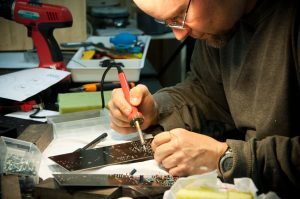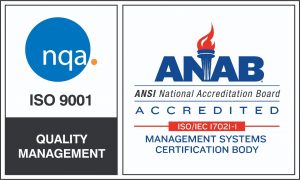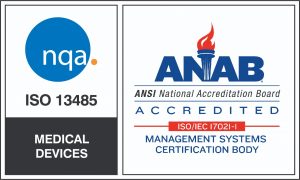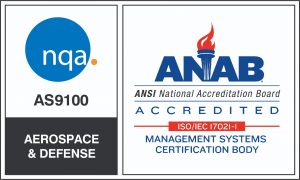 Companies considering moving part or all of their production to a contract manufacturer need to take the time to learn all they can about the contract manufacturing process. This is important if you wish to develop a long-lasing, mutually beneficial business relationship with your contract manufacturer.
Companies considering moving part or all of their production to a contract manufacturer need to take the time to learn all they can about the contract manufacturing process. This is important if you wish to develop a long-lasing, mutually beneficial business relationship with your contract manufacturer.
Design Considerations
The quality of a finished product depends on the quality of its design. Although utilizing the help of a contract manufacturer allows companies to shift some of the responsibilities to the CM, it’s extremely important that the OEM takes the time to clearly define the requirements and specifications of each project.
Parts created during the design phase should not be cost-prohibitive and they should function as intended once completed. This is crucial to the success of the finished product. During the design process, it is up to the OEM to define the manufacturability and functionality of each part. This involves numerous factors including material composition, product life cycle, and any required standards during manufacture and use of the product. It’s important to figure out the answers to these questions before transitioning to the manufacturing stage.
Choosing a Contract Manufacturer
Companies should take care when choosing a contract manufacturer to work with. Make sure you fully understand the strengths, weaknesses, and relevant experience the contract manufacturer has with similar products. Make sure the CM has experience working with the specific industry you plan to create products for. This is especially true for companies looking to create products for the medical and defense industries. An experienced contract manufacturer will understand the unique requirements and ensure the creation of high quality dependable devices.
Development Process
Once you’ve located a contract manufacturer, you’ll need to develop the manufacturing process for the product. Make sure that everyone fully understands the needs, expectations, and requirements of the project. All meetings should include not only engineers and operations managers, but also the production and assembly workers that will be working on the project. This allows you to collect knowledge and wisdom from as many sources as possible.
A little knowledge can go a long way towards a successful relationship with your contract manufacturer. This is why it’s so important to learn all you can before beginning the CM process.
 Most people think of contract manufacturing as a way to reduce the costs of production. While it is definitely true that outsourcing can significantly reduce production costs, what you might not realize is it also provides the unique opportunity for companies to gain access to the knowledge and experience of existing manufacturers.
Most people think of contract manufacturing as a way to reduce the costs of production. While it is definitely true that outsourcing can significantly reduce production costs, what you might not realize is it also provides the unique opportunity for companies to gain access to the knowledge and experience of existing manufacturers. Companies today are under a lot of pressure to create new products. While the design process requires a certain level of creativity and innovation, many new ideas come from older, existing products. Through reverse engineering, manufacturers can find new ways to utilize old ideas.
Companies today are under a lot of pressure to create new products. While the design process requires a certain level of creativity and innovation, many new ideas come from older, existing products. Through reverse engineering, manufacturers can find new ways to utilize old ideas. Contract manufacturers provide a wide range of services. While some companies utilize the help of CMs to fulfill periods of high demand, others enlist their help for all parts of production. Contract manufacturers provide numerous benefits regardless of when or how a company uses their services.
Contract manufacturers provide a wide range of services. While some companies utilize the help of CMs to fulfill periods of high demand, others enlist their help for all parts of production. Contract manufacturers provide numerous benefits regardless of when or how a company uses their services. Working with a contract manufacturer takes a certain level of trust. After all, these companies are responsible for the creation of your products. It’s important to learn all you can before hiring a CM.
Working with a contract manufacturer takes a certain level of trust. After all, these companies are responsible for the creation of your products. It’s important to learn all you can before hiring a CM.

